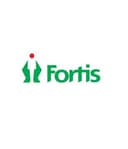Advanced Diploma in Radiotherapy Technology (ADRT)
OR
Prepared by Docthub Courses Team ∣
Last updated on 19 Jun 2025
Overview
The Advanced Diploma in Radiotherapy Technology (ADRT), under the specialty of Radiotherapy Technology, is designed to provide in-depth training and advanced skills in the field of radiotherapy. The duration of the program generally spans 12 to 18 months, although this may vary depending on the institute offering the course. The curriculum of the ADRT program includes advanced topics such as radiation oncology principles, radiation physics, treatment planning, dosimetry, and advanced radiotherapy techniques.Â

Table of Content
What is an Advanced Diploma in Radiotherapy Technology (ADRT)?
The Advanced Diploma in Radiotherapy Technology (ADRT) is a professional diploma program that provides comprehensive training in radiation therapy, patient positioning, radiation safety, and treatment planning. It equips students with the necessary knowledge to assist oncologists in treating cancer patients effectively.
Course Highlights
| Particulars | Details |
| Course Name | Advanced Diploma in Radiotherapy Technology (ADRT) |
| Course Type | Diploma |
| Duration | 2 Years |
| Eligibility | 10+2 with Physics, Chemistry, and Biology |
| Admission Process | Merit-based or entrance exam (varies by institution) |
| Fees | INR 50,000 - INR 3,00,000 per annum |
| Colleges in India | All India Institute of Medical Sciences (AIIMS) Tata Memorial Centre, Mumbai Christian Medical College (CMC), Vellore Post Graduate Institute of Medical Education and Research (PGIMER), Chandigarh Amrita Institute of Medical Sciences, Kochi |
| Job Roles | Radiotherapy Technologist, Medical Radiation Technologist, Oncology Technician, Radiation Therapy Assistant, Research Associate in Oncology, Medical Imaging Specialist |
Eligibility Conditions
To be accepted into the ADRT course, applicants must:
- Pass 10+2 with Physics, Chemistry, and Biology from a recognized board.
- Achieve the minimum aggregate score (typically 50% or more, institution-dependent).
- Pass an entrance examination, if required.
Program Duration
The Advanced Diploma in Radiotherapy Technology is a 2-year course, split into several semesters.
Course Fees
ADRT program tuition fees differ across institutions, typically ranging from INR 50,000 to INR 3,00,000 per annum.
Who Should Pursue ADRT?
The program is suited for:
- Students who wish to have a career in radiation therapy and oncology.
- People who are enthusiastic about healthcare and medical imaging.
- Those seeking a specialized paramedical profession with high employability.
Why ADRT?
- High Demand: The growing incidence of cancer has boosted the demand for radiotherapy professionals.
- Skill Development: Practical training in advanced radiotherapy methods and patient care.
- Varied Career Opportunities: Students can find employment in hospitals, cancer treatment facilities, and research centers.
- Postgraduate Opportunities: Can pave the way for postgraduate studies such as BSc Radiotherapy, MSc Radiation Therapy, or specializations related to these.
ADRT Entrance Examinations
In some colleges, admission to the ADRT course is through entrance exams, such as:
- AIIMS Paramedical Entrance Exam
- NEET (for some medical colleges providing diploma courses)
- State-level paramedical entrance examinations
Admission Procedure
The admission procedure for ADRT typically consists of:
- Submission of Application: Applicants submit their applications online or offline via the concerned institution's admission portal.
- Entrance Test (if applicable): Certain institutes hold entrance tests.
- Merit-Based Admission: Certain institutions accept students on the basis of their 10+2 academic record.
- Counseling & Document Verification: Selected candidates go through a counseling session and document verification process.
ADRT Course Syllabus
The course curriculum usually comprises:
| Year/Semester | Core Topics Covered |
| Semester 1 | Fundamentals of Radiation Physics – Introduction to radiation principles, sources, and interactions. Human Anatomy and Physiology – Study of human organ systems relevant to radiotherapy. Radiation Biology and Protection – Biological effects of radiation and safety measures. Introduction to Oncology – Basics of cancer biology, tumor classification, and staging.
|
| Semester 2 | Principles of Radiotherapy – Overview of treatment methods and equipment usage. Patient Positioning and Immobilization – Techniques for precise radiation delivery. Medical Imaging in Radiotherapy – Role of X-rays, CT, MRI, and PET scans in treatment planning. Radiation Safety and Quality Control – Guidelines for safe radiation exposure and equipment maintenance.
|
| Semester 3 | Clinical Radiotherapy Procedures – Hands-on training in treatment planning and execution. Radiation Treatment Planning and Dosimetry – Calculation and administration of accurate radiation doses. Advanced Radiotherapy Techniques – IMRT, IGRT, and stereotactic radiotherapy. Practical Applications in Oncology – Case studies and treatment approaches for various cancers.
|
| Semester 4 | Brachytherapy and Emerging Technologies – Internal radiation techniques and latest advancements. Ethics and Legal Aspects in Radiotherapy – Patient rights, ethical considerations, and legal responsibilities. Research and Development in Radiotherapy – Innovations and future trends in cancer treatment. Internship and Practical Training – Extensive clinical practice in hospitals and cancer centers. |
Career Scope of ADRT
ADRT graduates can work in:
- Hospitals & Cancer Treatment Centers
- Radiation Oncology Departments
- Research & Development Facilities
- Diagnostic Laboratories
- Public & Private Healthcare Sectors
Further Education Options
Upon ADRT, students can pursue:
- BSc in Radiotherapy Technology
- MSc in Radiation Therapy
- Postgraduate Diploma in Medical Radiotherapy
- Specialization in Radiation Oncology
Career Prospects After ADRT
- Radiotherapy Technologist
- Medical Radiation Technologist
- Oncology Technician
- Radiation Therapy Assistant
- Research Associate in Oncology
- Medical Imaging Specialist
Salary Expectations
The salary for ADRT graduates varies based on experience and location:
- Entry-Level: INR 3,00,000 - INR 4,50,000 per year
- Mid-Level: INR 5,00,000 - INR 7,00,000 per year
- Senior-Level: INR 8,00,000 - INR 12,00,000 per year
Explore colleges for this course
Quick Go Links

Explore this course by location..
by States
by Cities
Related Job Roles
Radiation Safety Officer (RSO)
Radiation Oncology Technologist
Radiotherapy Treatment Planner
Brachytherapy Technologist
Related Job Vacancies
View All 10 Jobs

FAQS
What are the eligibility criteria for ADRT?
Candidates who have passed 10+2 with Physics, Chemistry, and Biology from a recognized board.
What is the difference between ADRT and a BSc in Radiotherapy?
ADRT is a diploma course that includes practical training, whereas BSc in Radiotherapy is a degree course that has a wider theoretical background.
Is it possible to do ADRT after doing a BSc?
Yes, but ADRT is generally done after 10+2. Students with a BSc in allied sciences can take advanced courses in radiotherapy.
What are the career prospects after ADRT?
Graduates can find employment as radiotherapy technologists, oncology assistants, or medical radiation technologists in hospitals and cancer treatment facilities.
Do all colleges have an entrance exam for ADRT?
Some colleges have entrance exams, whereas others provide admission on the basis of 10+2 academic records.
Related Course titles

Qualifications
12th Science PCB
Related Specialty
Biomedical Technology
Audiometry and Speech Technology
Cardiac Technology
Anesthesia Technology
Blood Bank Technology





